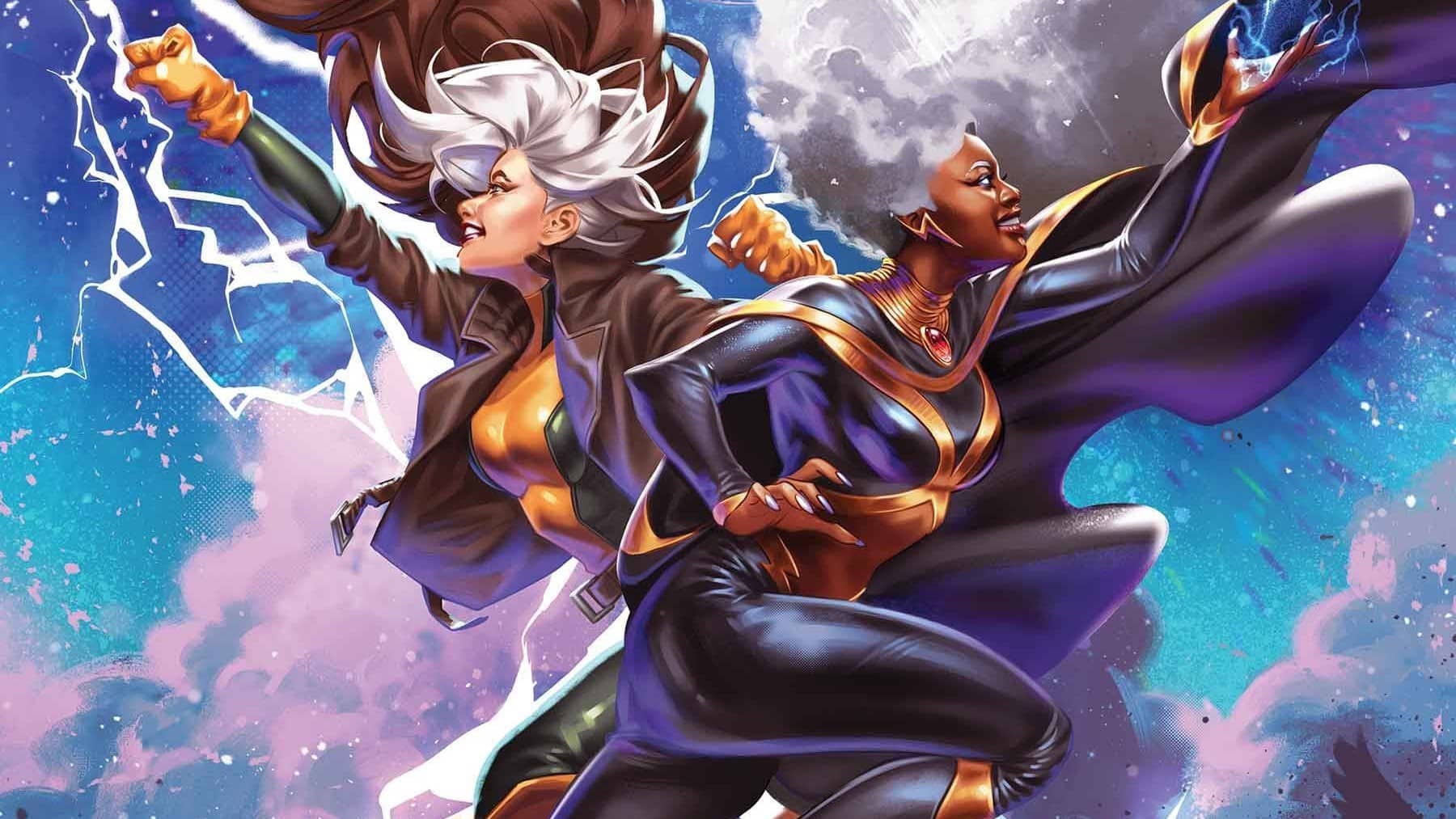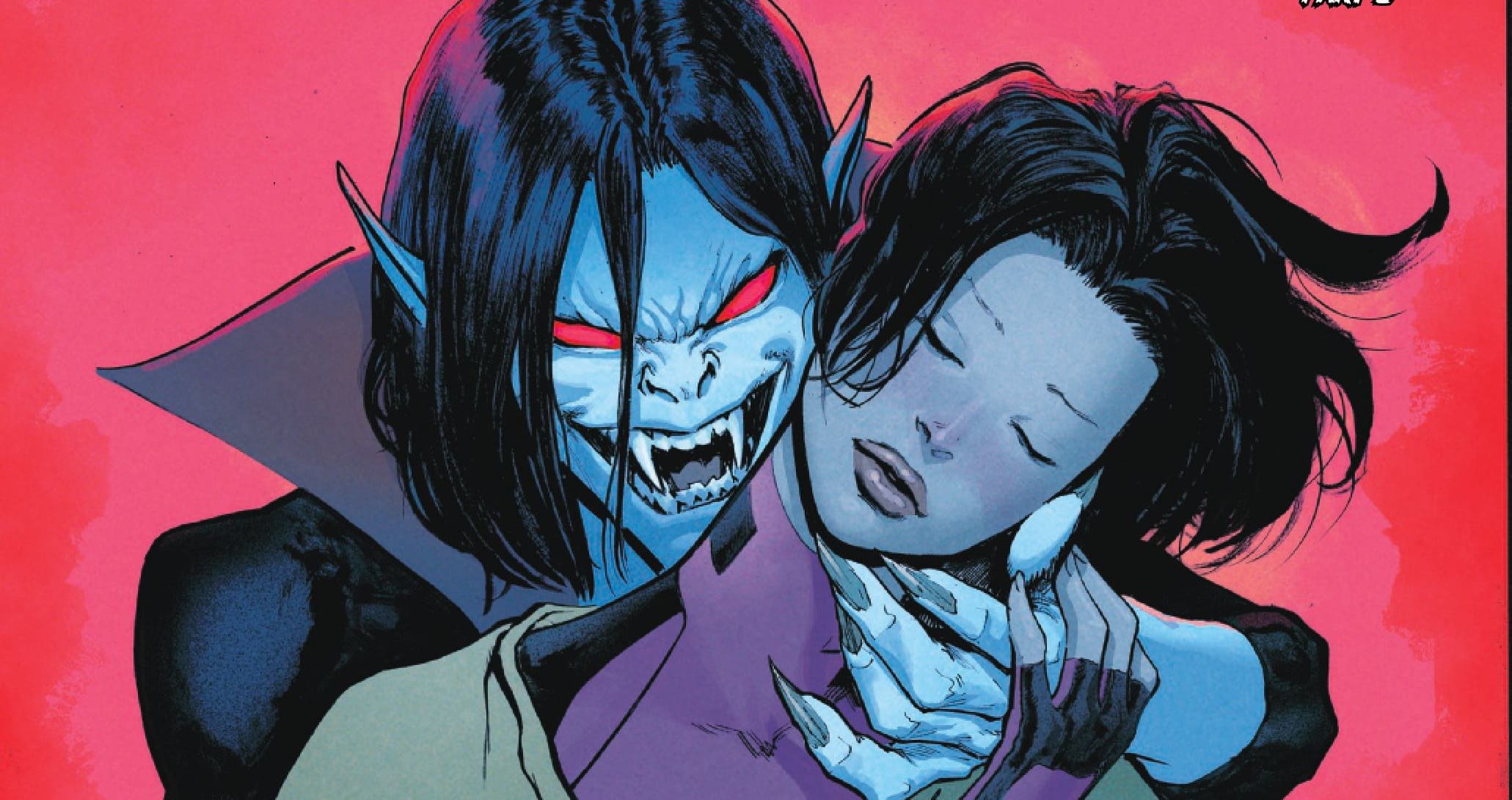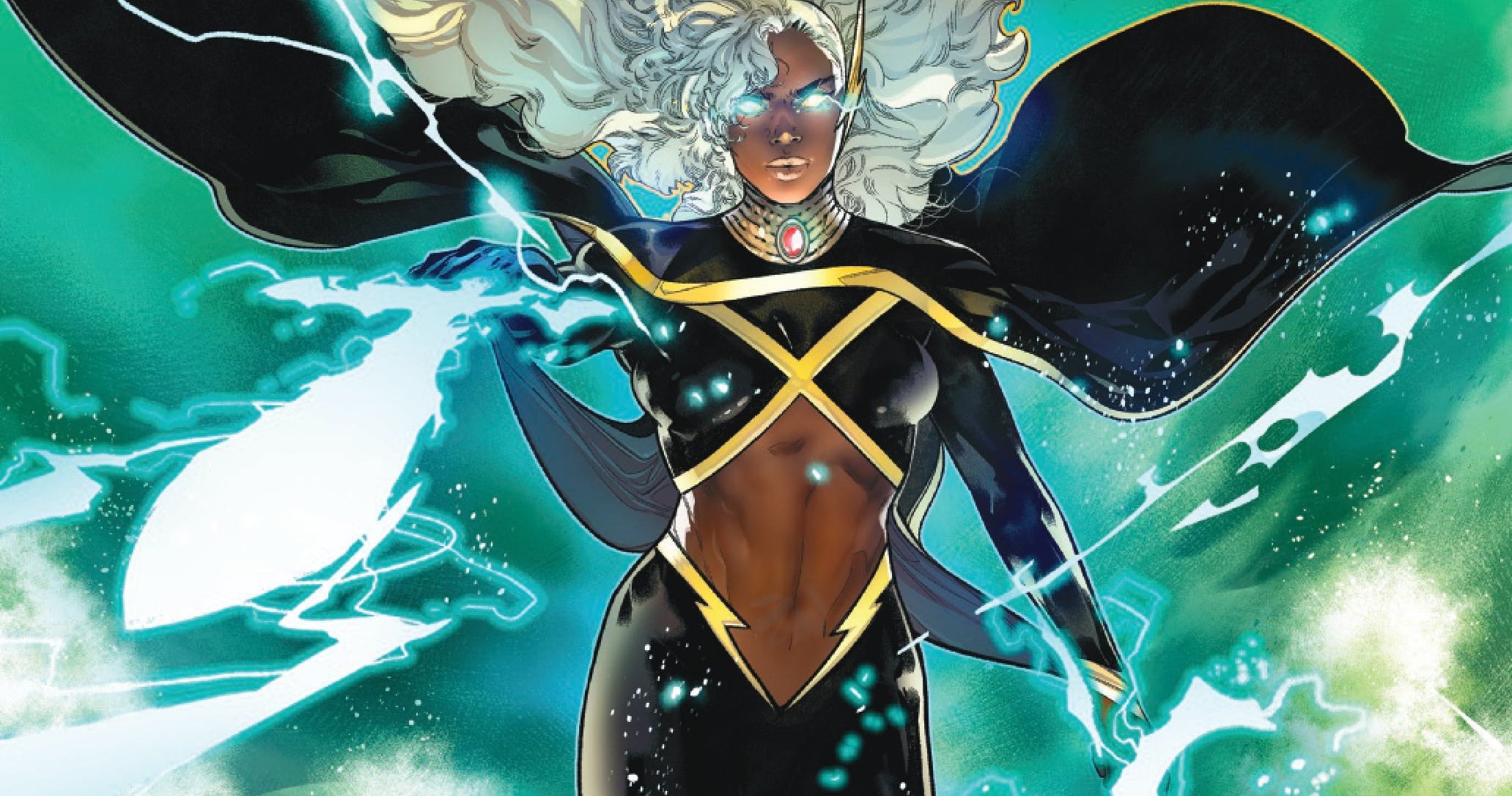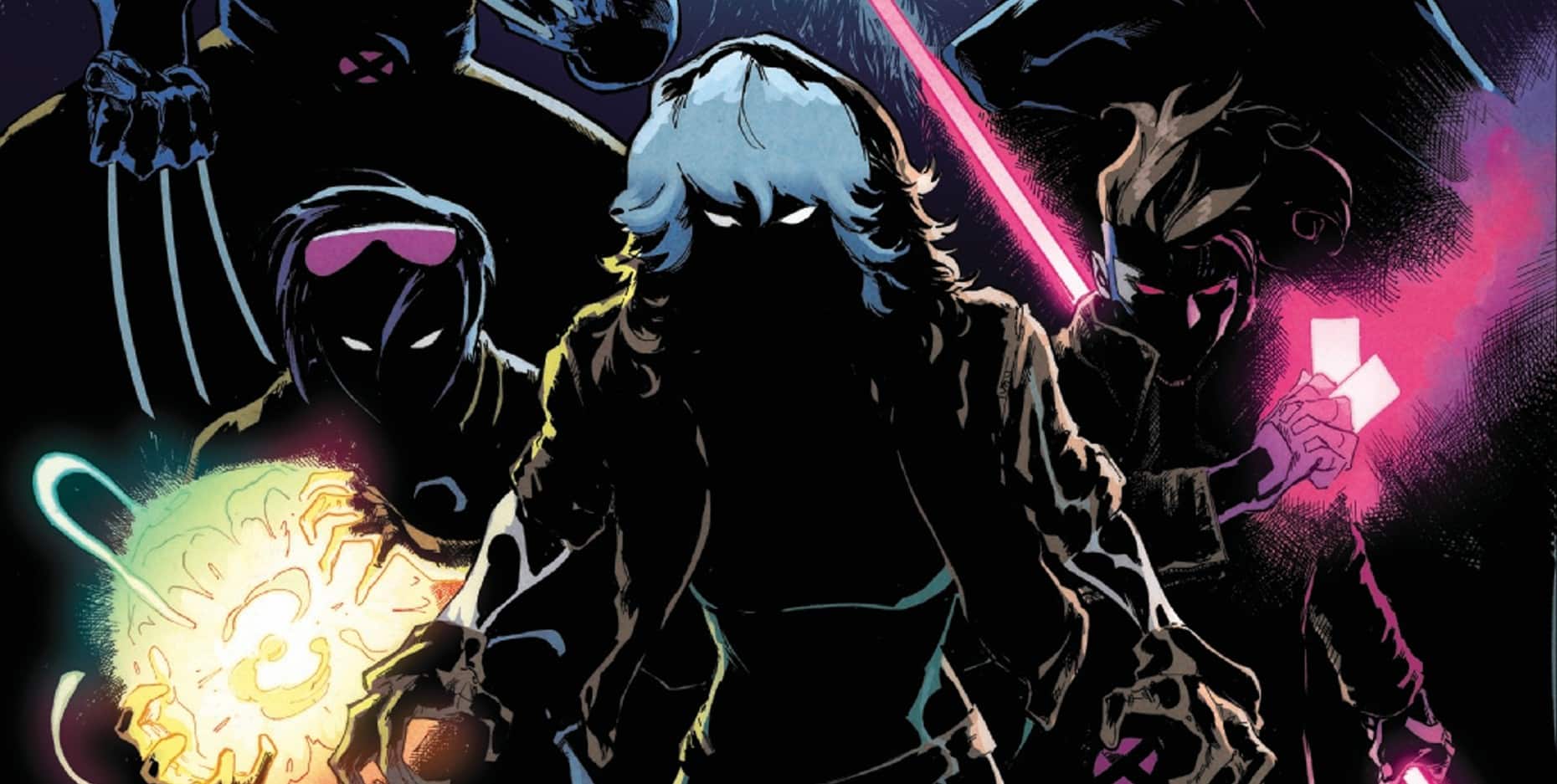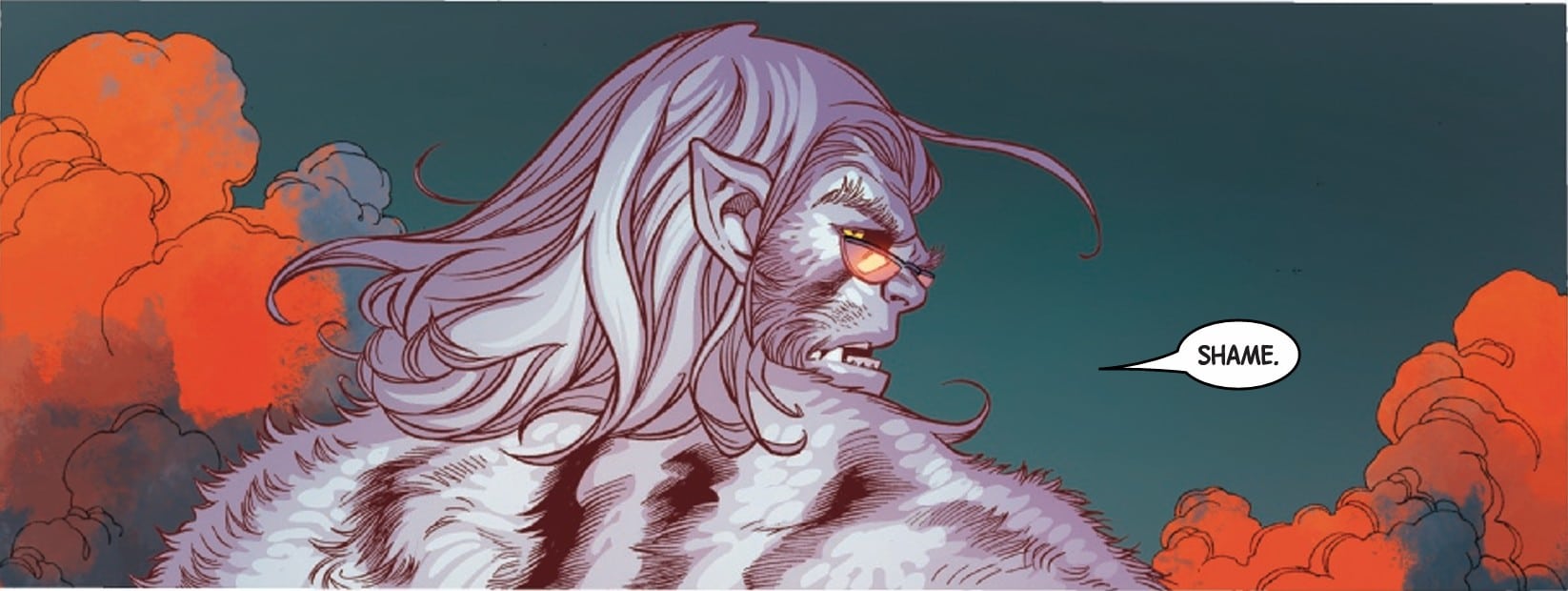The cost of Doctor Voodoo’s medical treatment is the loss of Storm’s powers for seven days. Ororo seeks refuge with her former teammates, the Uncanny X-Men, but it doesn’t turn out to be the relaxing holiday she thought it would be. A secret that aches the heart is born, and it sends Storm into the hands of Doom. Storm #3 is written by Murewa Ayodele, drawn by Lucas Werneck, colored by Alex Guimaraes and lettered by Travis Lanham.
“What the f*** is a Deviant?”
Understanding comics can be a chore. Decades of lore, of stories, of interactions and context determine how much you can fully enjoy. It’s why comics reset after a few years; the weight of lore can be too much for most folk to bear.
But maybe because I’m hard headed, maybe because I’m a masochist, maybe because I’m just built different (i.e. nerdy), this challenge excites me. Engrosses me. I appreciate doing the work to figure out whatever is being referenced.
I appreciated learning what a Skrull was.
I used Wikipedia, Fandom … whatever I could get my eyes on. And what my eyes saw was helpful! Sure, the emotional connection between the artists and myself was never established, so I never fully appreciated what made those comics special, but I got the gist of the story.
And sometimes, the gist, as it was, seemed pretty darn interesting on its own.
Thus, Storm #3: a pretty darn interesting gist of a comic.
Four things happen here: Storm gets cured of her sickness by Doctor Voodoo at the cost of seven days of the use of her mutant powers, but still has death lingering around her (though, apparently, just ominously, not imminently); the Louisiana X-Men welcome her into their abode, allowing her time to, uh, “rest” protected while she recovers; and Doctor Doom sends a big bird (not Big Bird, disappointingly) to request her presence in Latervia.
That’s it. (Yes, that’s only three of four things. I’ll get to the fourth soon.)
I say “that’s it” because the dialogue between characters feels analogous to wiki-esque exposition, not natural conversation. Voodoo succinctly lays down the plot without revealing much about his personality; Rogue and Ororo banter not about the past, or about their hopes or dreams or fears or present circumstances; not about what was lost, what’s gained, what’s yet to come, but … about a dress.
Glaringly, sadly missing is any dialogue expressing emotional growth. The emotional resonance of the comic is carried entirely by the (again, excellent) imagery of Lucas Werneck or the (much less excellent) omnipotent narrator. Again, character personalities, deeper-than-surface-level questions, anything save the bare-minimum info needed to push the story forward is nonexistent in character-to-character interactions.
And that isn’t the only critique.
Some may find Voodoo’s declaration that he doubts Storm will explore her magical side off-putting. (As she’s without her mutant powers, wouldn’t leaning into magic now make sense?) Some will find her time in Louisiana a convenient yet utterly pointless detour when you have an eponymous sanctuary floating above Atlanta, a fully autonomous space station staffed with Earth’s Mightiest Heroes, or the care of a (nearly) unconquerable nation, filled with folk who literally worship you at your disposal.
(Though as a Saints fan who went to college in Atlanta, I completely understand abandoning Atlanta for New Orleans-ish. Who Dat.)
And of Atlanta: Who’s taking care of the Storm Sanctuary? Who’s feeding Moo Deng? What’s the purpose of a sanctuary if you divorce yourself from it when you need, uh, sanctuary?
But let’s say Louisiana makes sense; maybe Popeyes and gumbo were calling your name (understandable!), and since you just became the healthiest person in the universe via Voodoo, you figure why not cash in some chips on some fried chicken.
Why, then, would you throw your knee into Wolverine’s adamantium jaw? Shouldn’t your knee be putty? Maybe you are using some magic after all!
And Wolverine … oh, Wolverine …
The fourth thing that happens in this comic, what’s clearly meant to be the emotional core of the issue, is Storm fu … fulfilling her physical needs with Logan. A fight turns into flirtation turns into yet another one night stand between the two erstwhile lovers.
A brief digression: Part of good criticism comes from separating “I do/don’t like this” from “this does/does not work well.” The two sometimes coincide, but they don’t necessarily have to. Things can be good, or at least done well, even if they’re not what I like or I would do.
It’s hard to divorce the dalliances between Logan and Ororo as little more than a frustrating fetish fulfillment for a certain kind of fan in a comic marketplace with few Black-on-Black unions. To see a literal Black queen coupled with an objectively mediocre white man — a soldier with stabby fists is absolutely mediocre compared to a goddess, word to Steve Trevor — whom she narratively, contextually, structurally has little in common with has always felt cheap and unnecessary.
But, again, “do not like” doesn’t necessarily mean “does not work well.”
Too bad it does here.
Messy things happen, especially in X-Men comics, so the coupling is what it is. However, the means by which Storm reacts to intimacy is frustratingly regressive: She’s ashamed. She whispers around Rogue, unable to make eye contact, as she’s embarrassed; she leaves without saying goodbye to Logan, who at least deserved a kiss on the cheek (or a pat on the ass).
We don’t know if Storm enjoyed the di … direct connection with Logan, but we do know Storm was not allowed to enjoy any afterglow. She showed only humiliation for acting on her desires, and she ran from the result of that desire as quickly as she could.
Poor Wolverine wasn’t even allowed to express an emotion at all.
Narratively, this plays into her isolation and confusion about her lot in life. Things are messy, and running out on your lover is a messy thing to do. This union was an allegory for her state of mind (and meme fodder for the fans who ship this union). Still, what would it look like for Storm to be proud of her choice; to enjoy her action, to enjoy the moment, to run into pleasure and not from it? Why is she not allowed to enjoy the erotic, to partake in it and bask in the afterglow? Compare this to her appreciation at being courted by Craig in X-Men Red, or the emotions she’s shared with T’Challa in Coates’ Black Panther run, or the erotic union of her powerset with Magneto, again in Red.
Even in the assumed contextual service of her running from community and support, hearing her feelings, her logic, in her own words would make for a more engrossing, fulfilling experience; hearing Wolverine process the encounter in his own words and voice could give context to his state of mind: Was he, in his wisdom (and he is wise), aware of what he was giving in the moment (comfort to the discomforted), or did he want more?
These emotional gaps, unable to be quickly summarized in a wiki, lay bare why the series continues to frustrate. There’s much happening here, much that’s interesting and possibly paradigm changing. Storm ambitiously seeks to operate on a grand, universal scale, and this grand character deserves that kind of care. Ayodele clearly loves the character, and his choices are surely meant to lead her to a grand place.
Still, the inability to give characters anything more than a rudimentary voice continues to hold the work back, making the journey into greatness more taxing than it should be.
Yes, Storm is worth buying and reading for the amazing, expressive art and limitless ambition, but from a strictly narrative standpoint, it’s little better than a Wikipedia explanation of itself.
And that’s as much of a shame as what happened to the Deviants, sadly.
Buy Storm #3 here. (Disclaimer: As an Amazon Associate, ComicsXF may earn from qualifying purchases.)
A proud New Orleanian living in the District of Columbia, Jude Jones is a professional thinker, amateur photographer, burgeoning runner and lover of Black culture, love and life. Magneto and Cyclops (and Killmonger) were right. Learn more about Jude at SaintJudeJones.com.

